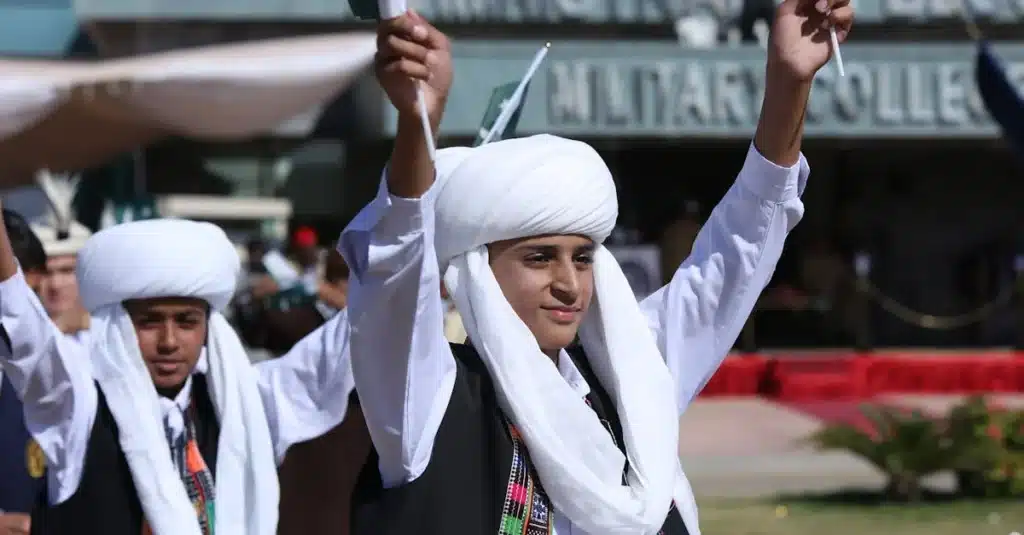Balochistan’s culture is a rich mixture of rituals, values, and traditions. It reflects the hospitality, harmony, and deep-rooted beliefs of its people. The Baloch are an ethnic group mostly found in Pakistan’s southwest, as well as in parts of Iran, Afghanistan, and the Arabian Peninsula. Known for their generosity, the Baloch are especially famous for their hospitality.
This hospitality is best seen in their traditional food. Dishes like sajji, a roasted lamb or chicken, and khadi kabab, a spicy meat curry, are commonly served to guests. Their nomadic roots also shape their cultural identity. The Baloch have a deep love for poetry, storytelling, and music.
Traditional Balochi music features instruments like the Saroz, Tambur, and Benju. Their dances include Jhumar, Chap, and Leva, each with its unique rhythm and energy. These artistic expressions form a vibrant tapestry that celebrates both history and everyday life.
The culture of Balochistan is one of the oldest in the region. It offers lessons and inspiration for those who value diversity. Passed down through generations, Baloch culture remains alive through music, poetry, and folklore. It is a treasure that deserves protection and recognition.
Baloch people take great pride in their heritage. Despite facing many challenges, they have preserved their unique identity. Their culture speaks through their stories, songs, and customs, carried proudly through time.
Historically, the Baloch migrated from the Caspian Sea region around the 13th century. Over time, they settled in Balochistan, which spans parts of modern-day Pakistan, Iran, and Afghanistan. Empires like the Mughals, Arabs, Persians, and Mauryans ruled over them. Yet, the Baloch retained their traditions and way of life.
Poetry remains a cornerstone of Baloch culture. Balochi verses use strong symbols and metaphors to explore themes of love, war, and nature. Oral storytelling is another major tradition, with heroic tales passed down through generations.
The Brahvi language also has a rich literary history. Writers like Abdul Qayum Bedar have added to its legacy with works such as Brahvi Ehwal. In times of hardship, it was the poets and storytellers who kept the cultural flame alive.
Mir Gul Khan Nasir, a celebrated Baloch poet, once said, “Baloch poetry is a reflection of our rich cultural heritage, a tapestry woven with the threads of tradition, history, and language.” His words capture the spirit of an enduring legacy.
Today, the Baloch people continue to embrace their roots. Their contributions to music, literature, and resistance show their resilience and creativity. Hospitality remains central to their identity, reflecting their warmth and generosity.
Baloch culture is more than tradition—it’s a living legacy. It reminds its people, and the world, of a history that must be preserved and passed on.





